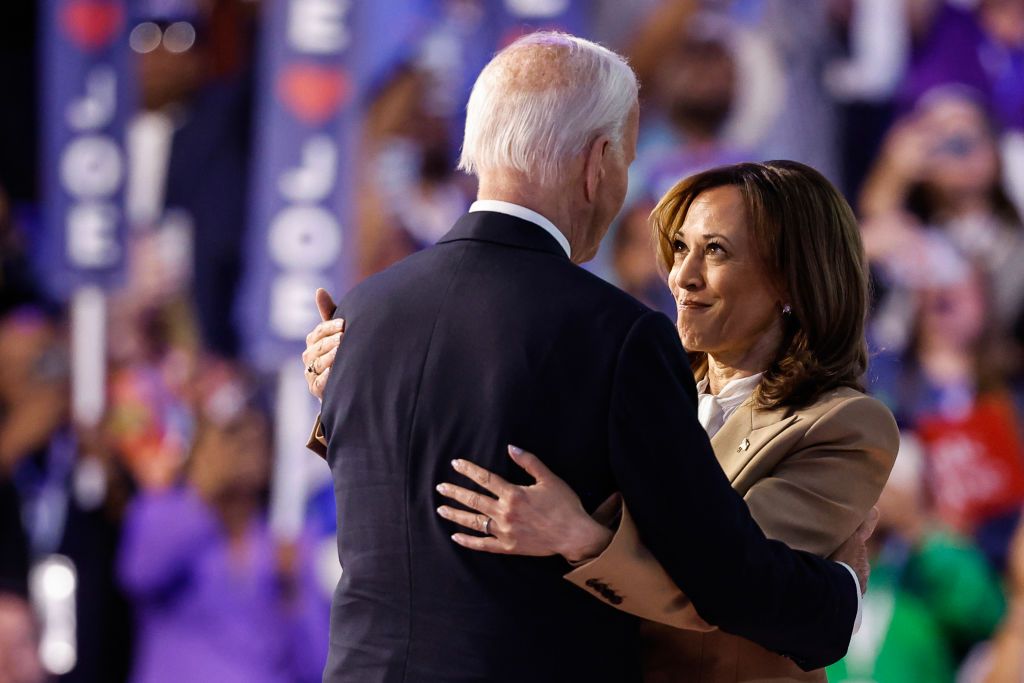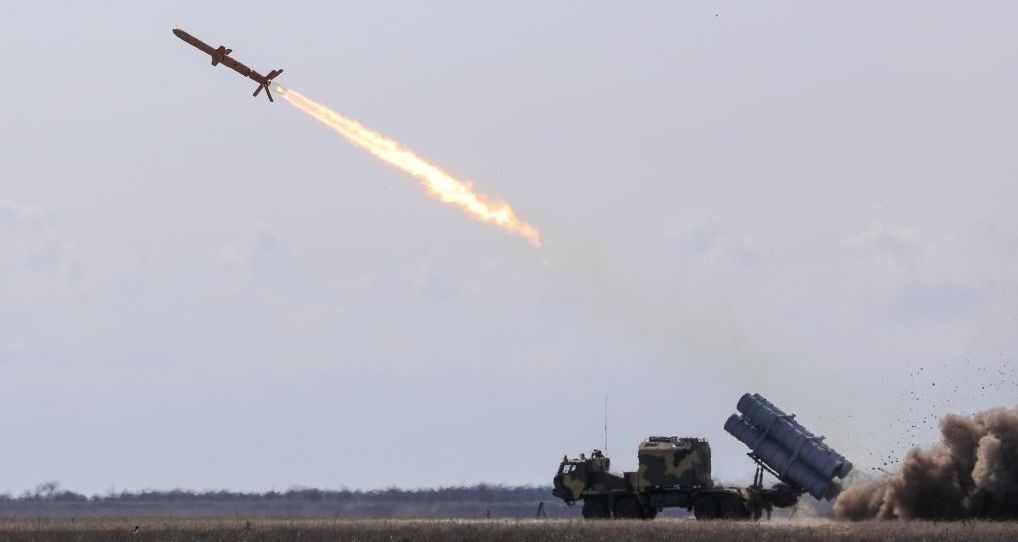Opinion: Western inaction on Ukraine’s security guarantees opens door to global nuclear proliferation
Western indecision in Ukraine’s pursuit of security guarantees risks triggering a global chain reaction, with nations turning to nuclear weapons as a deterrent in the absence of reliable security commitments.

An individual takes part in a drill organized by the State Emergency Service of Ukraine in front of the Chornobyl Nuclear Power Plant near Pripyat, Kyiv Ukraine, on Nov. 8, 2008. (Sergei Supinsky/AFP via Getty Images)
Russia’s invasion of Ukraine is approaching its 11th year, with three years of full-scale war. In search of security guarantees like NATO membership, Ukraine has been left in limbo due to Russian-occupied territories and Western bureaucracy.
In light of Russian advances and Western indecision, Kyiv has stated that NATO membership is one path to victory and negotiations on its own terms. If membership remains out of reach, Ukraine may restart its nuclear program, triggering a domino effect of nuclear proliferation — a consequence the West would directly bear due to its failure to manage escalation.
"If membership remains out of reach, Ukraine may restart its nuclear program, triggering a domino effect of nuclear proliferation — a consequence the West would directly bear due to its failure to manage escalation."
Kyiv’s aspirations for NATO were minimal prior to Russia’s initial invasion of Ukraine in 2014. The country’s initial bid for membership was vetoed by then-German Chancellor Angela Merkel in 2008, a decision she remains unapologetic about. Ukraine’s desire for NATO membership stagnated. However, the full-scale invasion in 2022 and Russia’s illegal annexation of parts of several Ukrainian oblasts reignited the push for NATO ascension.
After two years of negotiations and no security guarantees from major Western powers, as well as a stalled NATO path, Ukrainian President Volodymyr Zelensky stated that a resolution to the war would include NATO membership or a pathway to nuclear weapons.
After the Soviet Union collapsed, Ukraine inherited one of the largest nuclear arsenals in existence, as many Soviet-era missile silos were located within its borders. Russia, which held the launch codes, not only wanted the nuclear weapons but also demanded the destruction of Ukraine’s long-range bombers and missiles.
Under global pressure and threats, the West appeased Russia, forcing Ukraine to give up its nuclear weapons and dismantle its long-range missiles and bombers. In return, territorial sovereignty was guaranteed by the United States and Britain, which led the negotiations under the Budapest Memorandum, and by Russia, which recognized Ukraine’s 1991 borders.
Vladimir Putin’s rise to power and his imperial ambitions have not only threatened Ukraine but also other countries once part of the Soviet Union, including Georgia, Armenia, Kazakhstan, Chechnya, and Belarus — nations that dared protest or rebel under his rule.
Russia’s war against Ukraine showed that the Kremlin could not be trusted with the Budapest Memorandum. Putin’s illegal annexations of occupied Ukrainian regions underscored that Ukraine’s security guarantees had been violated.
As the war continues, Ukraine seeks international security guarantees, not only because it was disarmed but also because Russia’s invasion contradicted the promises made under the Memorandum.
Ukraine is currently seeking NATO membership or an alternative security guarantee — a mutual defense pact outside the collective alliance, similar to the agreements the U.S. has with Japan, South Korea, the Philippines, and Israel.

If Russia is allowed to maintain territorial gains without a clear path to NATO membership, it could trigger a global chain reaction — one the international community has sought to avoid since the height of the Cold War: a new era of nuclear proliferation.
A victory on current battle lines, or even further Russian annexation, would send a message that non-nuclear states cannot count on full international support for territorial sovereignty. The frequent nuclear threats made by the Kremlin would come to dominate global affairs.
"A victory on current battle lines, or even further Russian annexation, would send a message that non-nuclear states cannot count on full international support for territorial sovereignty."
The fear of continuous Russian nuclear bluffs would leave Ukraine vulnerable to the most significant conventional onslaught since the Iran-Iraq War. Kyiv could very well restart an independent nuclear weapons program regardless of potential sanctions or Western indecision.
Countries like China and a more belligerent North Korea might use nuclear blackmail to gain territorial concessions in their conflicts with Taiwan, Japan, and South Korea. Additionally, Russia’s successful use of nuclear threats could embolden it to pursue further expansion, eyeing countries like Moldova or even NATO members such as Estonia, Poland, and Lithuania.
If Europe and, particularly, the U.S. lose their “peace through strength” doctrine, smaller countries may feel compelled to create their own nuclear deterrents, rather than rely on vague assurances from Western powers like Ukraine.
South Korea has long been interested in a nuclear program, and growing instability in U.S. politics and foreign policy could push Seoul toward an independent nuclear path. Despite being a major supporter of Ukraine, South Korea is observing how U.S. leadership reacts to conflicts.
Japan could also pursue an independent nuclear program. The country has the capability to do so and faces looming conflicts with North Korea, China, and Russia — especially over the Kuril Islands.
Similarly, Taiwan could reassess its defensive posture, particularly as China has successfully lobbied to isolate the island internationally. Without guaranteed U.S. aid and mutual defense, Taiwan could be overwhelmed by China’s growing air and naval power, prompting Taipei to consider drastic measures, including nuclear weapons or even a strike on the Three Gorges Dam.
Eastern Europe, long wary of renewed Russian aggression and scarred by imperial and Soviet rule, could also consider nuclear deterrents if Russia maintains its current gains in Ukraine. Countries like Estonia, Latvia, Lithuania, Poland, and Romania might reassess their security, especially as political rhetoric from the U.S. weakens NATO’s cohesion.
The Russian invasion of Ukraine is now entering a precarious phase. Western indecision and hesitation could result in a dangerous outcome for Ukraine—and for the world. If no country feels safe without nuclear weapons as a deterrent, we could see a renewed arms race, marking the beginning of a new era of nuclear proliferation.
Editor’s Note: The opinions expressed in the op-ed section are those of the authors and do not necessarily reflect the views of the Kyiv Independent.












